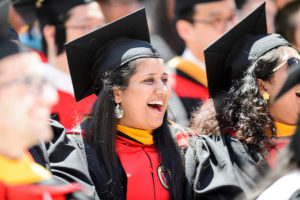 These “after the bachelor’s degree” programs give students the opportunity to strengthen their academic record for application to professional schools after earning an undergraduate degree. Post-baccalaureate programs vary in purpose and design. If you’re interested in doing post-baccalaureate coursework, research individual programs in order to see which ones will best help you accomplish your goals.
These “after the bachelor’s degree” programs give students the opportunity to strengthen their academic record for application to professional schools after earning an undergraduate degree. Post-baccalaureate programs vary in purpose and design. If you’re interested in doing post-baccalaureate coursework, research individual programs in order to see which ones will best help you accomplish your goals.
The information on this page will describe the different types of programs, provide links to a few places where you can begin your research and questions to think about as you decide on the programs that interest you.
Special Student Status
UW-Madison does not have a post-bacc program. Students who want to complete or repeat prerequisite coursework on the UW-Madison campus after graduation can do so as a “special student,” meaning you are non-degree seeking. Contact the Office of Continuing Studies to learn more about enrolling as a special student.
Academic Record Enhancers
These programs are for students who hope to enhance an existing undergraduate academic record. They have completed the prerequisite coursework but need to improve their GPA in order to be competitive and well-prepared for a health professions school.
Special Masters Programs
These programs are geared towards students who have majored in a science and completed all the prerequisite coursework. They allow students to take coursework at the same level as graduate students or medical students and often include other components such as research experience. A masters degree is conferred on all who complete the program.
Career Changers
These are students who decide to pursue a career in healthcare after earning an undergraduate degree. Career changers, post-baccalaureate, need to complete the science coursework required for application to and success in health professions schools.
Programs for Students from Populations Underrepresented in Medicine
These programs are for students from groups underrepresented in medicine or economically and/or educationally disadvantaged students. Below are some examples:
Links to Resources for Further Research
- The AAMC offers a database where you search according to various characteristics of programs, including the kinds of students programs aim to serve (called “Student Focus” on the AAMC site).
- Syracuse University provides links to specific post-baccalaureate programs, including programs for dental students.
Questions to ask yourself as you research post-baccalaureate programs
- Timing and Cost: How long is the program (usually one to two years)? Will it fit your timeline? How much does the program cost? Could you get financial assistance?
- Program Structure and Support: Does the program have a set curriculum, or does the student develop his/her own curriculum? Would you be in a formal program with other students in a situation similar to yours? Will advising, research, and volunteer opportunities be available? Does the program offer test preparation?
- Level of Coursework in the Program: Will you be taking upper-level undergraduate coursework, graduate-level coursework, or coursework with medical (or other health professions) students?
- Competitiveness of the Program: How difficult is it to get into the program?
- Program Collaboration: Does the program have collaborative relationships with health professions schools? (Some post-baccalaureate programs are formally affiliated with medical or dental schools and guarantee an interview or admission to students who successfully complete their program.)
- Program Reputation: How long has the program been in existence? What is their placement rate? (If this isn’t on their website, call and ask!)
- Application Components: What are they — an application, personal statement, letter(s) of recommendation, entrance exam (e.g., MCAT, DAT, GRE), minimum GPA requirements? Also, note that some programs require you to have been denied application to a professional health school in order to enroll in their program.